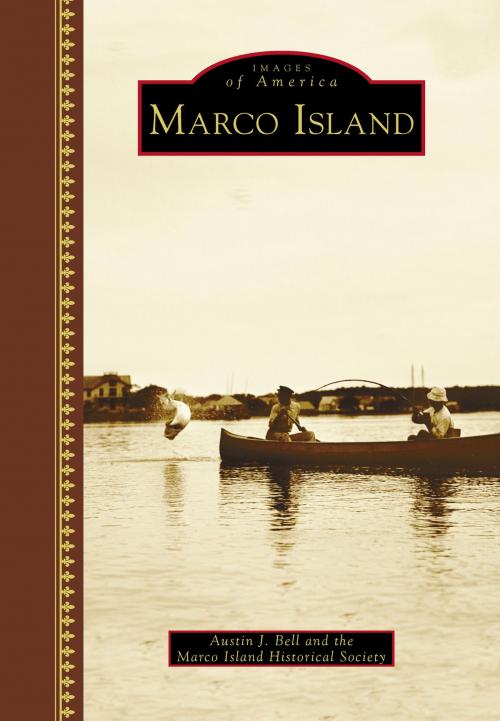Marco Island
Nonfiction, Travel, United States, South, Social & Cultural Studies, Social Science, Archaeology| Author: | Austin J. Bell, The Marco Island Historical Society | ISBN: | 9781439663226 |
| Publisher: | Arcadia Publishing Inc. | Publication: | October 9, 2017 |
| Imprint: | Arcadia Publishing | Language: | English |
| Author: | Austin J. Bell, The Marco Island Historical Society |
| ISBN: | 9781439663226 |
| Publisher: | Arcadia Publishing Inc. |
| Publication: | October 9, 2017 |
| Imprint: | Arcadia Publishing |
| Language: | English |
Marco Island projects prominently from Florida's mainland at the peninsula's southwestern fringe, where the waters of the Everglades and the Gulf of Mexico commingle. Its tropical climate, verdant landscape, unique topography, and abundant wildlife sustained prehistoric Native American cultures for centuries. The first pioneer settlers arrived in 1870, carving out a niche on the harsh Florida frontier. Bustling villages soon sprang up on the island, bolstered by strong leaders and economies centered around farming and fishing. The crash of Florida's land boom, along with the Great Depression, devastating hurricanes, and a series of failed developments, ultimately stunted the island's growth. Most of Marco Island was sold to the Deltona Corporation in 1964, which transformed the island into a place its early residents might find unrecognizable. Despite Marco Island's common distinction as the largest of Florida's Ten Thousand Islands, there are only 12 square miles of land upon which to wander--making the enormity of its history all the more remarkable.
Marco Island projects prominently from Florida's mainland at the peninsula's southwestern fringe, where the waters of the Everglades and the Gulf of Mexico commingle. Its tropical climate, verdant landscape, unique topography, and abundant wildlife sustained prehistoric Native American cultures for centuries. The first pioneer settlers arrived in 1870, carving out a niche on the harsh Florida frontier. Bustling villages soon sprang up on the island, bolstered by strong leaders and economies centered around farming and fishing. The crash of Florida's land boom, along with the Great Depression, devastating hurricanes, and a series of failed developments, ultimately stunted the island's growth. Most of Marco Island was sold to the Deltona Corporation in 1964, which transformed the island into a place its early residents might find unrecognizable. Despite Marco Island's common distinction as the largest of Florida's Ten Thousand Islands, there are only 12 square miles of land upon which to wander--making the enormity of its history all the more remarkable.















